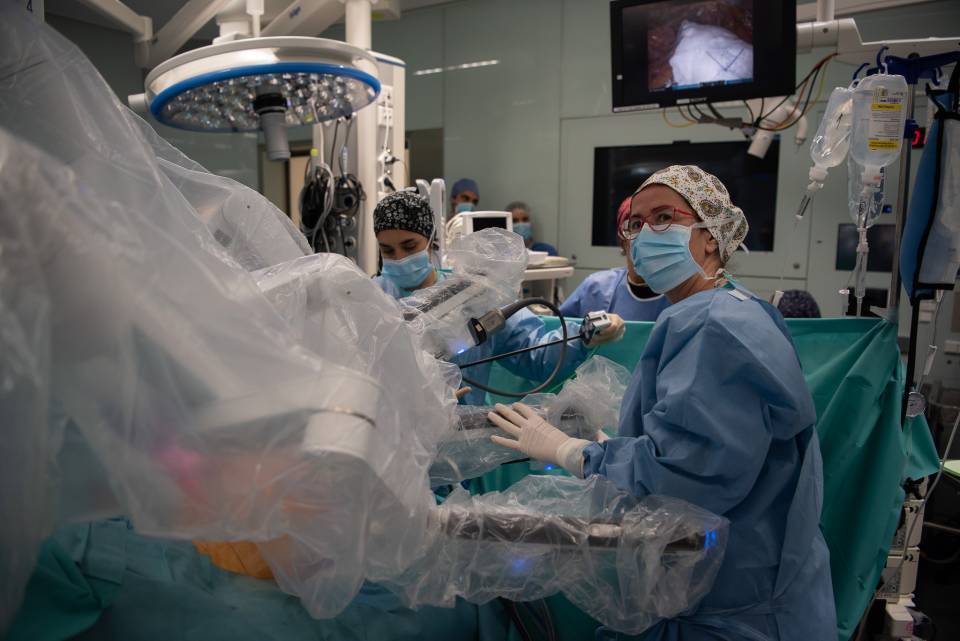In Europe to date, we have five approved vaccines against the SARS-CoV-2 virus, of which more than eleven million doses have been administered. All of these vaccines have proven to be highly effective at preventing severe forms of COVID-19 and have an acceptable safety profile. Nevertheless, the notification of rare adverse effects, such as Guillain-Barré syndrome, linked to the administration of these vaccines means that strict monitoring of those vaccinated is necessary.
For this reason, a team led by Daniel Prieto-Alhambra and made up of researchers from the University of Oxford, Fundació Institut Universitari per a la recerca a l’Atenció Primària de Salut Jordi Gol i Gurina, Universitat Autònoma de Barcelona, Hospital Clínic, and Universitat de Barcelona, has analyzed two large databases containing electronic clinical primary-care records from the United Kingdom and Catalonia. Eugenia Martínez-Hernández, a researcher of the Hospital Clínic-IDIBAPS group Pathogenesis of autoimmune neurological diseases, directed by Josep Dalmau, took part in the study.
“The analysis includes 8.3 million people who have received at least one does of the COVID-19 vaccines from Oxford-AstraZeneca, Pfizer-BioNTech, Moderna or Janssen, 735,870 unvaccinated patients who have had the disease, and 14.3 million people from the general population”, explained Martínez-Hernández. “In these population groups, we have studies four neurological disorders (peripheral facial palsy, known as Bell’s palsy, encephalomyelitis, transverse myelitis, and Guillain-Barré syndrome) and their onset in the 21 days following administration of the first dose of the vaccine or in the 90 days following a positive test for infection with SARS-CoV-2. Furthermore, we used the number of new cases diagnosed in the general population between 2017 and 2019 as a baseline reference”.
According to the results, the number of people who developed Bell’s palsy, encephalomyelitis, and Guillain-Barré syndrome after receiving the vaccine was similar to the incidence in the general population. That is, the researchers observed no link between vaccination and the appearance of these disorders. Cases of Bell’s palsy, encephalomyelitis, and Guillain-Barré syndrome did increase more than expected, however, in unvaccinated people infected by the virus. “This appears to indicate that SARS-CoV-2 infection may increase the risk of developing autoimmune neurological disorders, which is an argument in favor of vaccination, as the evidence shows that the vaccines are safe”, said the researcher. It was not possible to determine the link between the vaccines and transverse myelitis, as the number of cases was below five in all the vaccinated groups, which made it impossible to perform a conclusive analysis.

Martínez-Hernández is an expert in neurological diseases in which the immune system alters the structure and functioning of the central nervous system, made up of the brain and spinal cord, or the peripheral nervous system, made up of the nerves and neuromuscular junctions. Her experience contributed to the review and classification of the diagnoses included in the study, and in the relationship of the results obtained with the neurological literature and clinical practice. Her research receives funding from the Carlos III Institute of Health.
Study reference
Xintong Li, Berta Raventós, Elena Roel, Andrea Pistillo, Eugenia Martínez-Hernández, Antonella Delmestri, Carlen Reyes, Victoria Strauss, Daniel Prieto-Alhambra, Edward Burn, Talita Duarte-Salles. Association between covid-19 vaccination, SARS-CoV-2 infection, and risk of immune mediated neurological events: population based cohort and self-controlled case series analysis. BMJ 2022; 376 doi: https://doi.org/10.1136/bmj-2021-068373.




